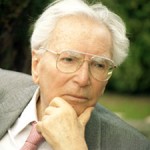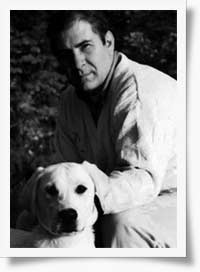
Richard Nixon was born on this date 100 years ago. He was as polarizing as any public figure we have ever seen. To some, he was the personification of evil and a rabid right-winger. Others remember him as a progressive whose domestic achievements would mark him as a liberal by the standards of today’s Republican Party. He was the crook who had to relinquish the Presidency because of Watergate and the President who created the Environmental Protection Agency and the Occupational Safety and Health Administration, supported the Clean Air Act and affirmative action, increased Social Security benefits, and proposed a health reform package more comprehensive than anything we have seen since. He was a complicated man with a complex legacy.
A few years back, Arthur Flemming gave me an insight into Nixon’s character. Arthur knew Nixon well from the time they both served in Eisenhower’s cabinet – Nixon as Vice President and Flemming as Secretary of Health, Education and Welfare. They were close enough that when Nixon began his first campaign for President, he asked for and received Flemming’s help.
Near the end of that campaign, Flemming found himself with Nixon in California. The combination of Nixon’s strong showing there and a statement on Nixon’s behalf by President Eisenhower had drawn the election unpredictably close. Both Nixon and Flemming knew the campaign was for all intents and purposes over. As he considered the possibility that he might lose, Nixon fixed his attention on polling data showing a significant shift in his favor after President Eisenhower’s recent show of support.
“Maybe I should have asked Ike to get more involved in the campaign,” Nixon said, “but he is the President. It didn’t seem appropriate for me to make demands on his time.”
When Nixon and Flemming parted they knew the election could go either way. A week later, Flemming was in the Oval Office meeting with President Eisenhower. The election was by then over and Nixon had lost one of the closest elections in history.
“It’s too bad,” Eisenhower said. “I really think I could have helped him but it was his campaign. Who was I to intrude?”
It’s the kind of thing that gives you pause. Imagine how different the world would be if Nixon had been able to get beyond his insecurity and ask for Eisenhower’s help. Would Kennedy have been elected? Would there have been a Bay of Pigs or Watergate? Would there have been a space program? Would men have walked on the moon? Would President Kennedy, his brother, Robert, or Martin Luther King have been assassinated? Would there have been a Vietnam and the dark decade that followed?
There is no way to know, of course; but what is clear is that a simple, personal decision Nixon made at a critical point in time affected all of our lives and everything that followed. Reverse it and much of modern history would unravel.
Nixon’ lesson is the realization that we are responsible for what we do not do as much as for what we do. If all we do is try to avoid defeat, we can never claim victory. To be happy, we must be willing to risk heartbreak. To be blessed, we must risk being a fool – giving not getting, reaching out for the hand that may not be there, stepping out into the unknown with only faith to face fear. The greatest regret in life is the knowledge that we may not have done all that we could have done with what we are given, the sense that we have never fully become ourselves. The person who risks nothing, does nothing, has nothing, and is nothing.






